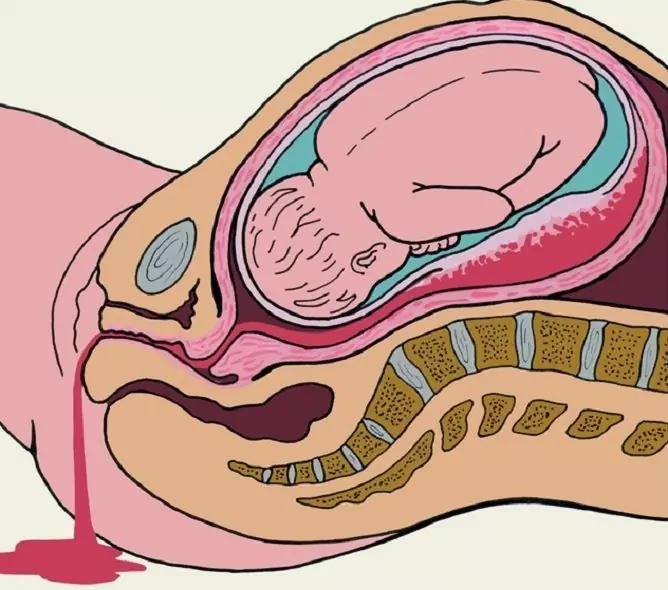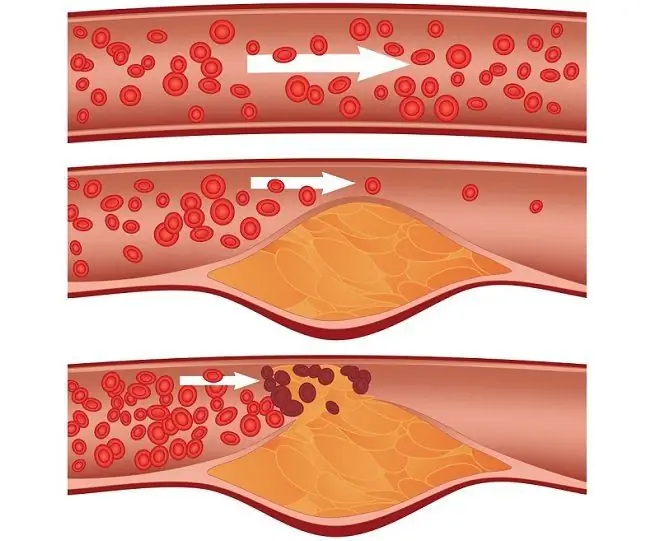- Author Rachel Wainwright wainwright@abchealthonline.com.
- Public 2023-12-15 07:39.
- Last modified 2025-11-02 20:14.
Gastroduodenitis
Gastroduodenitis is an inflammation of the mucous membrane of the stomach and duodenum. This disease is one of the most common diseases of the gastrointestinal tract, along with gastritis. According to statistics, more than half of the entire population of cities suffers from gastroenterological pathology, and gastritis and gastroduodenitis account for the lion's share - from 70 to 80%, according to various experts.
Causes of gastroduodenitis

Gastroduodenitis is a polietiologic disease, that is, for its occurrence, a combination of several factors is necessary: psychogenic causes, errors in nutrition, and infection with Helicobacter pilory. The researchers also believe that a hereditary predisposition matters - if the closest relatives suffer from diseases of the gastrointestinal tract, then the likelihood of contracting gastroduodenitis increases significantly.
The psychogenic causes of gastroduodenitis include frequent stress and increased nervousness due to insufficient rest. Stresses, both acute single and small constant, have an extremely negative effect on the state of the gastrointestinal tract throughout its entire length, from the secretion of saliva in the oral cavity and ending with the mechanism of defecation. In turn, impaired digestion triggers the mechanism of stress instability, which creates a vicious circle, without breaking it, it is impossible to effectively treat diseases of the stomach and intestines.
Errors in nutrition have become so common for an ordinary city dweller that they are often no longer perceived as such. However, they were and remain one of the most important factors disrupting the activity of the gastrointestinal tract and contributing to the development of the disease. This includes both the absence of a diet and nutrition with poor quality, industrial food, often in the most unhealthy state - dry, cold, hastily. Is it any wonder that the disease has become so widespread in modern society.
Helicobacter pylori is a bacterium responsible for diseases of the stomach and duodenum. This bacterium, multiplying in the mucous membrane, violates its protective properties, as a result of which surface defects are formed - erosion and ulcers, which are aggressively affected by gastric juice, exacerbating inflammation.
Types of gastroduodenitis
Like any inflammatory disease, acute, chronic gastroduodenitis, and aggravated one is distinguished. The most common chronic gastroduodenitis, patients usually seek medical help in the acute stage. As a rule, a chronic process is a consequence of an untreated acute one, but the disease is often primary chronic, that is, it initially arises as a chronic disease that occurs with periods of exacerbations and remissions.

Depending on the nature of the pathological process occurring in the mucous membrane of the stomach and duodenum, the following forms of chronic gastroduodenitis are distinguished:
- Superficial gastroduodenitis. In this form, the mucous membrane of the stomach and duodenum is edematous, the folds are thickened;
- Hypertrophic gastroduodenitis. The mucous membrane is hyperemic, in some areas there are hemorrhages (punctate hemorrhages), edematous, covered with a fibrinous-mucous coating;
- Mixed form of gastroduodenitis. The mucous membrane as a whole looks like in hypertrophic gastroduodenitis, but there are foci of atrophy;
- Erosive gastroduodenitis. The mucous membrane is edematous, hyperemic, contains multiple erosions, covered with a fibrinous-mucous coating.
Depending on the secretory function:
- Gastroduodenitis with reduced secretory function (reduced acidity);
- Gastroduodenitis with normal secretory function;
- Gastroduodenitis with increased secretory function (increased acidity).
Symptoms of gastroduodenitis
Symptoms of gastroduodenitis are extremely diverse, and the form of their manifestation depends on the nature of the course, in acute gastroduodenitis they are bright, pronounced, but short-lived, in chronic gastroduodenitis, they are constant, intensifying during exacerbations.
The most characteristic symptoms of gastroduodenitis include: aching pain in the epigastric region (epigastric region) one and a half to two hours after eating, accompanied by nausea, a feeling of heaviness and distention in the epigastric region, belching, heartburn. The tongue is covered with a dense yellowish coating and is swollen, which is manifested by the appearance of dental prints on its lateral surfaces. The abdomen is painful when felt in the epigastric region. Also a symptom of gastroduodenitis is a violation of the excretory function of the intestine, there may be diarrhea, constipation or alternation of constipation with diarrhea.
Patients with chronic gastroduodenitis are pale, irritable, they show weight loss, sleep disturbances are frequent, and fatigue appears.
Diagnosis of gastroduodenitis
Since the symptoms of gastroduodenitis are multiple and characteristic not only for this disease, but also for other diseases of the gastrointestinal tract, its diagnosis is quite difficult and requires a number of studies. The main one is fibrogastroduodenoscopy - a method that allows you to examine in detail the mucous membrane of the stomach and duodenum, take the gastric and duodenal contents for analysis, and, if necessary, a small piece of tissue for histological examination in order to detect Helicobacter pylory. An assessment of the secretory function of the stomach (intragastric pH-metry) and its motor function is carried out. Be sure to conduct laboratory tests of blood, urine, feces.
Treatment of gastroduodenitis
Treatment of gastroduodenitis in acute and chronic exacerbated form is as follows:
- Bed rest for a week;
- Strict diet (table number 1);
- Antibacterial therapy against Helicobacter pylori;
- Taking drugs that regulate acidity and motor function of the stomach and duodenum.

After the acute symptoms of gastroduodenitis have subsided, the dietary recommendations of table No. 1 are changed to table No. 5, non-pharmacological agents are prescribed, anti-inflammatory and rehabilitative action: physiotherapeutic procedures, physiotherapy exercises, intake of medicinal mineral waters, etc.
Treatment of chronic gastroduodenitis, regardless of whether the patient has superficial gastroduodenitis, or mixed, or any other type, should be comprehensive. During the calm period, the patient should follow the diet of table No. 5, observe the diet and rest, balneotherapy gives very good results, a preventive course of spa treatment is recommended once a year. Even in the event that a complete remission has been achieved, it is necessary to remember about your tendency to gastroduodenitis, and, for preventive purposes, observe the rules of a healthy diet throughout your life.
YouTube video related to the article:
The information is generalized and provided for informational purposes only. At the first sign of illness, see your doctor. Self-medication is hazardous to health!






